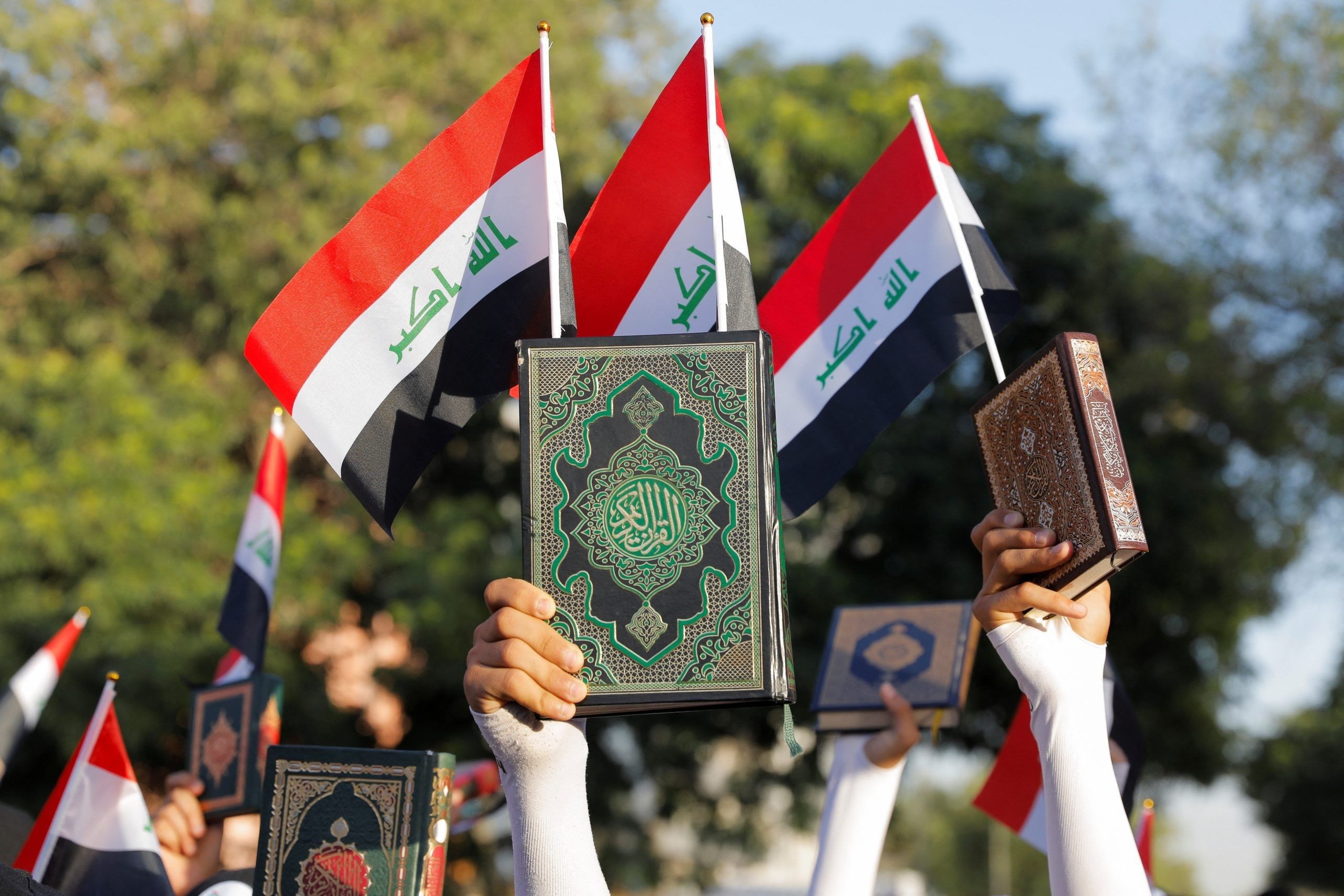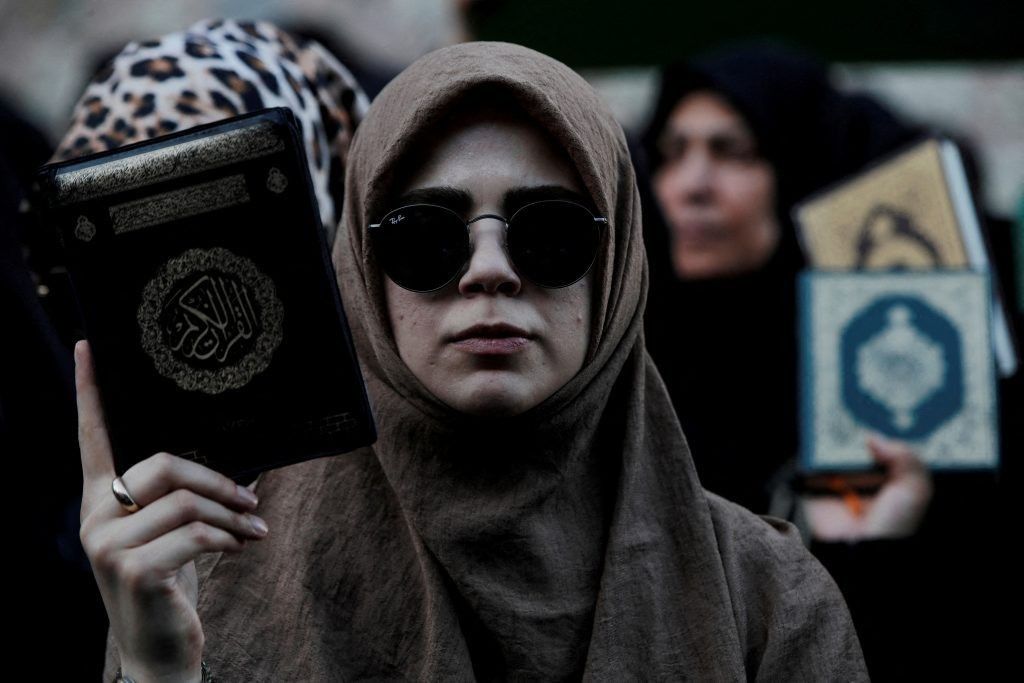- Sunday, May 05, 2024
Both Sweden and Denmark say they are examining ways to legally limit burnings to de-escalate tensions with Muslim nations

By: Kimberly Rodrigues
Anti-Islam activists in Denmark and Sweden have recently engaged in the burning and damaging of multiple copies of the Qu’ran, sparking outrage within the Muslim world and prompting calls for these Nordic nations to prohibit such actions.
Both governments have expressed condemnation for these burnings and are contemplating the enactment of new legislation to prevent such incidents.
However, critics within their respective countries argue that these actions could potentially infringe upon constitutionally protected freedoms of speech and expression.
Who is responsible for the Qu’ran burnings and what is their motivation?
A series of recent incidents in Sweden, spanning the last month, have been orchestrated by Salwan Momika, an Iraqi refugee who seeks to protest against the entire institution of Islam and advocate for a ban on its sacred text.
Around the same time as these protests, the Danish Patriots, a far-right activist group in Denmark, organised their own anti-Muslim demonstrations.
They assert that their actions are a response to what they perceive as the “Islamisation” of Nordic societies.
Within the past week alone, approximately ten copies of the Qu’ran have been burned in Denmark.
Rasmus Paludan, a Danish-Swedish far-right activist who has been involved in sporadic Qu’ran burnings since 2017, has escalated these actions in both countries this year.
Paludan claims that his motivation stems from his anger towards Turkey’s opposition to Sweden’s bid for NATO membership.
Why have the burnings caused such outrage?
The recent burnings of the Qu’ran have incited significant outrage due to the deeply ingrained religious beliefs surrounding the Islamic holy book.

Muslims consider the Qu’ran to be the literal word of God, and deliberately desecrating it is viewed as a blasphemous and highly disrespectful act, carrying severe repercussions.
Within the Muslim faith, the Qu’ran is regarded as a divine message revealed to Prophet Mohammad in Arabic through the Angel Gabriel.
Treating a printed Qu’ran with utmost reverence is a common practice, requiring individuals to be in a state of ritual purity before touching it. Placing the Qu’ran on the ground or putting objects on top of it is also strictly avoided.
What is at the heart of the issue in Sweden and Denmark?
The issue at the heart of the controversy in Sweden and Denmark revolves around the clash between secular and liberal values and religious sensitivities.
Both countries are known for their strong commitment to freedom of expression and have historically allowed robust public criticism of various religions, including Islam.
Denmark, in particular, stands as a prominent example, with politicians from across the political spectrum arguing that an outright ban on such actions would infringe upon citizens’ constitutionally enshrined right to freedom of speech.
Susie Jessen, a lawmaker representing the right-wing Denmark Democrats party, expressed this sentiment stating, “I would never burn books, but I will fight for other people to have the right to do it”.
What are Sweden and Denmark doing now?
Nevertheless, both Sweden and Denmark say they are examining ways to legally limit burnings to de-escalate tensions with Muslim nations.
They have both already faced significant retaliation. Angry crowds stormed Sweden’s embassy in Baghdad in July.
Both this week said they were facing increasing security threats.
Their ambassadors have been called in for rebukes and warnings across the Middle East.
Turkish President Tayyip Erdogan has said he will work to get Sweden’s application to join NATO approved, but also warned it wouldn’t happen as long as copies of the Qu’ran were being burnt in Sweden.
What next for the law in Denmark and Sweden?
The Danish and Swedish governments say freedom of speech is already limited to some extent – it is illegal to insult someone over their ethnicity or sexual orientation.
But neither country has had legislation that can be used to forbid burning Qu’rans.
Sweden scrapped its blasphemy law in 1970, Denmark in 2017.
In Sweden, police must issue a permit to protesters but can only refuse one if public safety at the protest site is compromised.
In Denmark, protesters are only required to inform the police they are demonstrating.
The Swedish government is looking at whether its laws on maintaining public order could be modified. It has ruled out making it illegal to burn holy scriptures.
The Danish government said on Sunday (30) it would seek to find a “legal tool” that could enable authorities to intervene in such protests, if deemed to entail “significant negative consequences for Denmark, not least with regard to security”.
(Reuters)